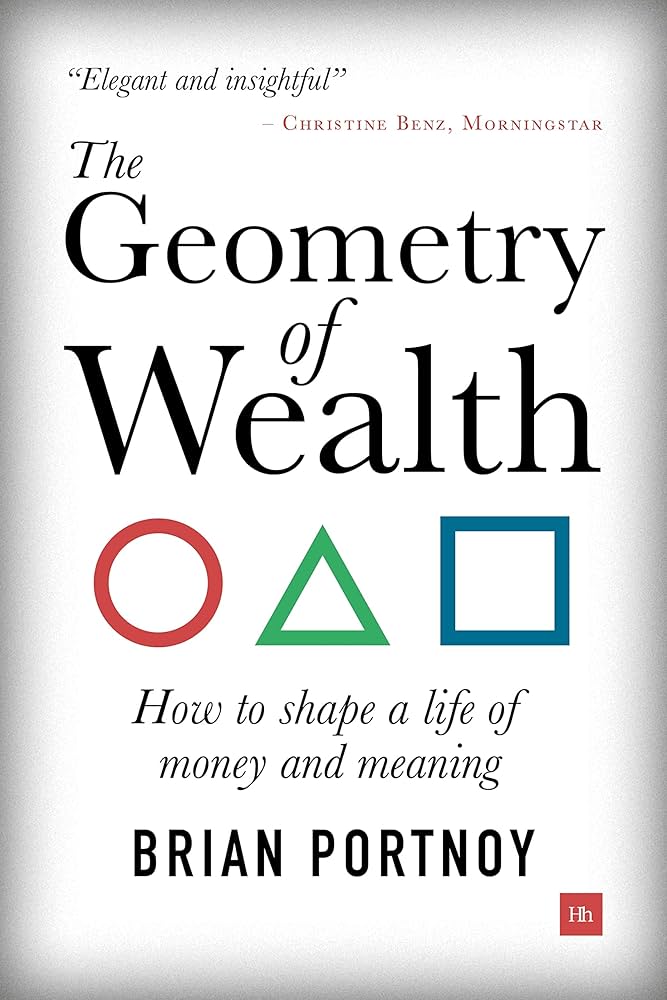The Geometry of Wealth: How to Shape a Life of Money and Meaning (Brian Portnoy)
What Resonated with Me
The integration of financial planning with the pursuit of a meaningful life stands out. Emphasizing the importance of defining purpose, setting priorities, and making decisions aligns with my values of intentional living and strategic financial management. The concepts of adaptive simplicity, the dual nature of our brains in financial decision-making, and the significance of connection, control, competence, and context in achieving a fulfilling life are compelling. The book’s holistic approach to wealth and meaning resonates deeply with my own aspirations for financial and personal well-being.
Summary
“The Geometry of Wealth” by Brian Portnoy explores how to shape a life of both money and meaning. The book is structured around three shapes—circle, triangle, and square—that represent the journey from purpose to priorities to tactics. Portnoy introduces the concept of adaptive simplicity and emphasizes the importance of understanding the human brain’s dual nature in making financial decisions. The book provides a framework for integrating financial planning with the pursuit of a meaningful life, highlighting the roles of connection, control, competence, and context.
3 Key Takeaways
Portnoy outlines a clear path from defining one’s purpose to setting priorities and making tactical decisions. This journey is represented by three shapes: the circle (purpose), the triangle (priorities), and the square (tactics). Each step involves key actions such as adaptation, prioritisation, and simplification.
The concept of adaptive simplicity involves rolling with the punches and cutting through the noise in both financial and personal decisions. This mindset helps navigate the complexities of life and finance, promoting a balanced approach to achieving wealth and fulfilment.
The book identifies four enduring sources of joy—connection, control, competence, and context. These elements are essential for a fulfilling life, providing a sense of belonging, the ability to direct one’s destiny, the need to be good at something worthwhile, and a purpose outside of oneself.
Interesting Quotes
Other Notes
- Human Brain and Financial Decisions: Portnoy discusses the dual nature of the brain, with System 1 (intuitive) and System 2 (reasoning) thinking, and how this impacts financial decisions. Understanding this dual process can help make better financial choices.
- Historical Context: The book provides a historical perspective on the shift from traditional pension plans to individual retirement planning, highlighting the increased responsibility for personal financial health.
- Money and Happiness: Portnoy explores the complex relationship between money and happiness, noting that money can alleviate poverty and provide short-term pleasure but has limits in purchasing long-term joy.
- Intrinsic vs. Extrinsic Motivation: The book discusses the importance of intrinsic motivation, emphasising that external rewards and punishments can diminish performance and creativity. Affirmative feedback and choice enhance intrinsic motivation, leading to better outcomes.
- Joy vs. Happiness: Portnoy distinguishes between joy and happiness, noting that joy is a deeper, more enduring state that is less dependent on external circumstances.
Every week, I’ll be sharing practical tips and invaluable knowledge to guide you on your path to financial independence.

